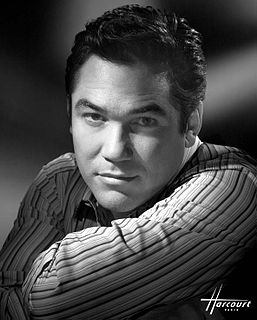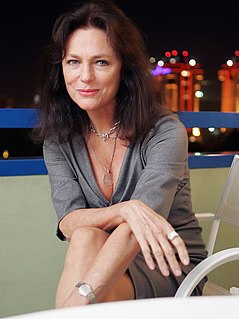A Quote by Xavier Durringer
I want viewers want to talk about The Conquest. I want the dialogue to start after the movie. The cinema is there to leave a trace. I hope my film leaves a trace and that it will open a door for French cinema and that tomorrow other directors will make political movies. The job of a filmmaker today is to talk about the world surrounding him and, through his movies, to both entertain and raise questions about modern society.
Quote Topics
Related Quotes
I'm ready for all forms of dialogue about the film The Conquest. There will be a lot of political talk, but I don't think the film itself will be scandalous. For the French, there are so many emotions relating to Sarkozy and politicians in general that I think the film will generate a lot of passion, whether it be negative or positive. Above all, it's a fictional film. It was important not to make a documentary and to really pay attention to the images. From the choice of the actors to the mise en scene, the film is completely cinematographic. It's not just a boring political movie.
Good genre movies are a little bit like trying to write a haiku. There are certain things that you have to do to fulfill the audience's expectations, but inside that, you have complete freedom to talk about whatever you want. Who wants to see a movie about gun violence in America and class? But, if you set it in this terrifying, fun, roller coaster ride of a movie, you can talk about whatever you want. That's been the game that genre movies play, when they do it well.
The film The Conquest will be seen on many different levels and the American point of view is always more technical. The French are less technical - it's 'I like it, or I don't like it.' I hope that this film can have a life in the U.S. - it's the grand country of cinema. I grew up with Hollywood movies, so for a French director to have a film distributed in the U.S. is a real opportunity.
I come from a documentary background and my natural tendency, as a filmmaker, is to make a movie, if I have something to talk about. If it's not about anything that matters, I don't feel like doing it. I'm not against people who make movies just for fun, but I'm not one of those guys. I just want to provoke thinking and debating about certain issues.
If I wanted to do TV full-time, 'Breaking Bad' is definitely the type of project I would want to do. But TV is not my favorite thing in the world. I definitely want to focus on film. It's what I grew up loving. It's always been about movies, movies, movies, movies, movies. I really want to make great films.
Without a doubt, I was born to want to make cinema, but the kind of cinema I want to make is not like commercial movies, which I enjoy myself, but I wanted to be the kind of filmmaker who wrote original work, sort of like a novelist would who deals with who we are and our times or our relationships.
More than my other films, Uncle Boonmee is very much about cinema, that's also why it's personal. If you care to look, each reel of the film has a different style - acting style, lighting style, or cinematic references - but most of them reflect movies. I think that when you make a film about recollection and death, you have to consider that cinema is also dying - at least this kind of old cinema that nobody makes anymore.
Some directors hand over portions of their movie to their head of department to the point where it's like, "I'm not going to talk to you about the costumes, but I'm going to let you talk to the expert." Rather than, "You want to talk stitching, let's talk stitching. You want to talk grade of leather? Let's."
As the acting class was going on, I just realized I just knew more about cinema than the other people in the class. I cared about cinema and they cared about themselves. But two, was actually at a certain point I just realized that I love movies too much to simply appear in them. I wanted the movies to be my movies.






























